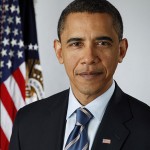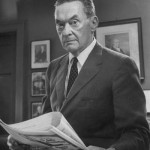Obama’s Speech on Education
 At 11 a.m. central time, President Obama delivered a speech addressed to school children across the country. The hullabaloo that has preceded this event has amazed me; last week, Florida Republican party chairman Jim Greer said he was “absolutely appalled that taxpayer dollars are being used to spread President Obama’s socialist ideology.” A Facebook poll that asked whether President Obama should “be allowed to do a nationwide address to school children without parental consent” was running at 50.2% saying “no,” 46.1% saying “yes,” and 3.7% saying “I don’t care,” as of just before 11 a.m. this morning. Another online poll, on Newsvine, showed that 81.3% of the respondents indicating they’d let their children hear the speech, 16.9% saying they wouldn’t, and 1.8% indicating that the idea of a speech was fine, but that there wasn’t enough time in the school day for such a thing. This isn’t, of course, the first time that a sitting president has addressed school children. In 1991, George H.W. Bush gave a speech at a junior high school, “urg[ing] students to study hard, avoid drugs and turn in troublemakers.” Democrats criticized the speech as “paid political advertising.”
At 11 a.m. central time, President Obama delivered a speech addressed to school children across the country. The hullabaloo that has preceded this event has amazed me; last week, Florida Republican party chairman Jim Greer said he was “absolutely appalled that taxpayer dollars are being used to spread President Obama’s socialist ideology.” A Facebook poll that asked whether President Obama should “be allowed to do a nationwide address to school children without parental consent” was running at 50.2% saying “no,” 46.1% saying “yes,” and 3.7% saying “I don’t care,” as of just before 11 a.m. this morning. Another online poll, on Newsvine, showed that 81.3% of the respondents indicating they’d let their children hear the speech, 16.9% saying they wouldn’t, and 1.8% indicating that the idea of a speech was fine, but that there wasn’t enough time in the school day for such a thing. This isn’t, of course, the first time that a sitting president has addressed school children. In 1991, George H.W. Bush gave a speech at a junior high school, “urg[ing] students to study hard, avoid drugs and turn in troublemakers.” Democrats criticized the speech as “paid political advertising.”
As I read the text of President Obama’s speech, I find it hard to discern “socialist ideology” or even “paid political advertising.” (Let us remember that pretty much everyone to whom his remarks are addressed is unable to vote!) His remarks seem more “Republican” than not. The themes of personal responsibility and hard work pervade the speech. He says, “But at the end of the day, we can have the most dedicated teachers, the most supportive parents, and the best schools in the world – and none of it will matter unless all of you fulfill your responsibilities”? He exhorts students to avoid making excuses about their role in their education. “[T]he circumstances of your life – what you look like, where you come from, how much money you have, what you’ve got going on at home – that’s no excuse for neglecting your homework or having a bad attitude. . . . That’s no excuse for not trying.” And he reminds students that success is hard work and that they should learn from their failures. “[Y]ou can’t let your failures define you – you have to let them teach you.”
How could any parent find fault in such advice? Is it simply because the messenger is from a different political party or is it something else entirely? Barack Obama is the president of the United States. A demanding job, to be sure, but also a job that is heavy with symbolism. There shouldn’t be anything inherently political in the simple fact that the county’s figurehead wishes to press upon the country’s future – its school children – that they ought to do their best in school and work hard.

 It is difficult to watch the video of the various “town hall meetings” and constituent listening sessions that have taken place during the current congressional recess. The overwhelming feeling engendered by these scenes of screaming faces is a feeling of despair for the future of democracy itself. After all, town hall meetings hold an important place in our nation’s history as a symbol of the general public’s continuing participation in their own democratic government.
It is difficult to watch the video of the various “town hall meetings” and constituent listening sessions that have taken place during the current congressional recess. The overwhelming feeling engendered by these scenes of screaming faces is a feeling of despair for the future of democracy itself. After all, town hall meetings hold an important place in our nation’s history as a symbol of the general public’s continuing participation in their own democratic government.